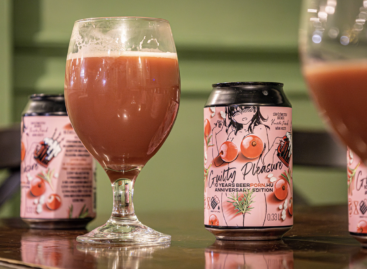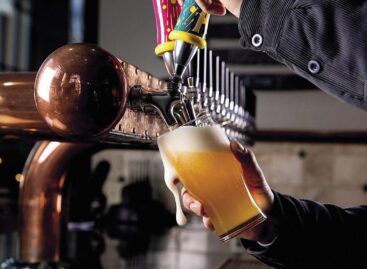A new era in brewing: from rice to mushrooms – the sustainable beer specialties of the future
Brewing and drinking beer is one of the oldest customs of mankind: the first drinks were made thousands of years before our era, and we have been continuously perfecting the recipe ever since. Beers, which were initially fermented from grain and fruit, received their current basis through hops in the early Middle Ages, and the famous German Beer Purity Law of 1516 still defines the ingredients of beer as a valid standard. However, tradition has never meant stagnation: one of the secrets of beer’s global success is precisely that it has always been able to adapt to the changing environment and consumer expectations – a summary of beer specialties has been prepared by the Agrárszektor.
 Nowadays, climate change and health-conscious consumer trends present manufacturers with a new challenge. More and more studies warn that the quality of the usual beer ingredients may deteriorate and the flavors may change. It is no coincidence that both big brands and smaller craft breweries have begun a feverish research and development. The aim of the innovations is to simultaneously achieve sustainability, create unique flavors, and create healthier alternatives. And indeed: sometimes new beers are created from quite surprising ingredients.
Nowadays, climate change and health-conscious consumer trends present manufacturers with a new challenge. More and more studies warn that the quality of the usual beer ingredients may deteriorate and the flavors may change. It is no coincidence that both big brands and smaller craft breweries have begun a feverish research and development. The aim of the innovations is to simultaneously achieve sustainability, create unique flavors, and create healthier alternatives. And indeed: sometimes new beers are created from quite surprising ingredients.
Sake is known worldwide, but now rice is also receiving increasing attention as a beer ingredient. Beers brewed from ground rice not only make low-alcohol and non-alcoholic versions more palatable, but also offer a completely new exotic flavor world. The global rice beer market is expected to exceed $5.5 billion by 2031.
Meli beer, developed by researchers at MIT and Harvard, made entirely from quinoa, has been a real breakthrough in the American market. The 4.4% drink is made without added sugar, is rich in nutrients, and offers an alternative that is also enjoyable for those following a gluten-free diet.
Collider adaptogenic beer, launched in 2024, is almost completely alcohol-free (0.5%), instead containing functional mushrooms and mood-enhancing botanicals. The goal: to promote relaxation and healthier consumption. The product has already attracted hundreds of thousands of pounds in investment, indicating the growing popularity of mushroom-based drinks.
Foni grain, grown in the Sahel region of Africa, not only saves water, but also creates economic opportunities for local communities. Thanks to the Brewing for Impact Initiative and RahrBSG, the first fonio beers have already appeared in North America this year.
The Carlsberg Group has set an ambitious goal: by 2040, it wants to brew all its beers from regenerative grains. The Grobund brewery in Denmark has already launched its first such product, which not only reduces emissions, but also supports soil health and biodiversity.
Related news
Hungarian beer magazine celebrates with rosé beer
🎧 Hallgasd a cikket: Lejátszás Szünet Folytatás Leállítás Nyelv: Auto…
Read more >Slovenia’s largest brewery not affected by Heineken Group’s downsizing for now
🎧 Hallgasd a cikket: Lejátszás Szünet Folytatás Leállítás Nyelv: Auto…
Read more >Power in craft beer
🎧 Hallgasd a cikket: Lejátszás Szünet Folytatás Leállítás Nyelv: Auto…
Read more >








